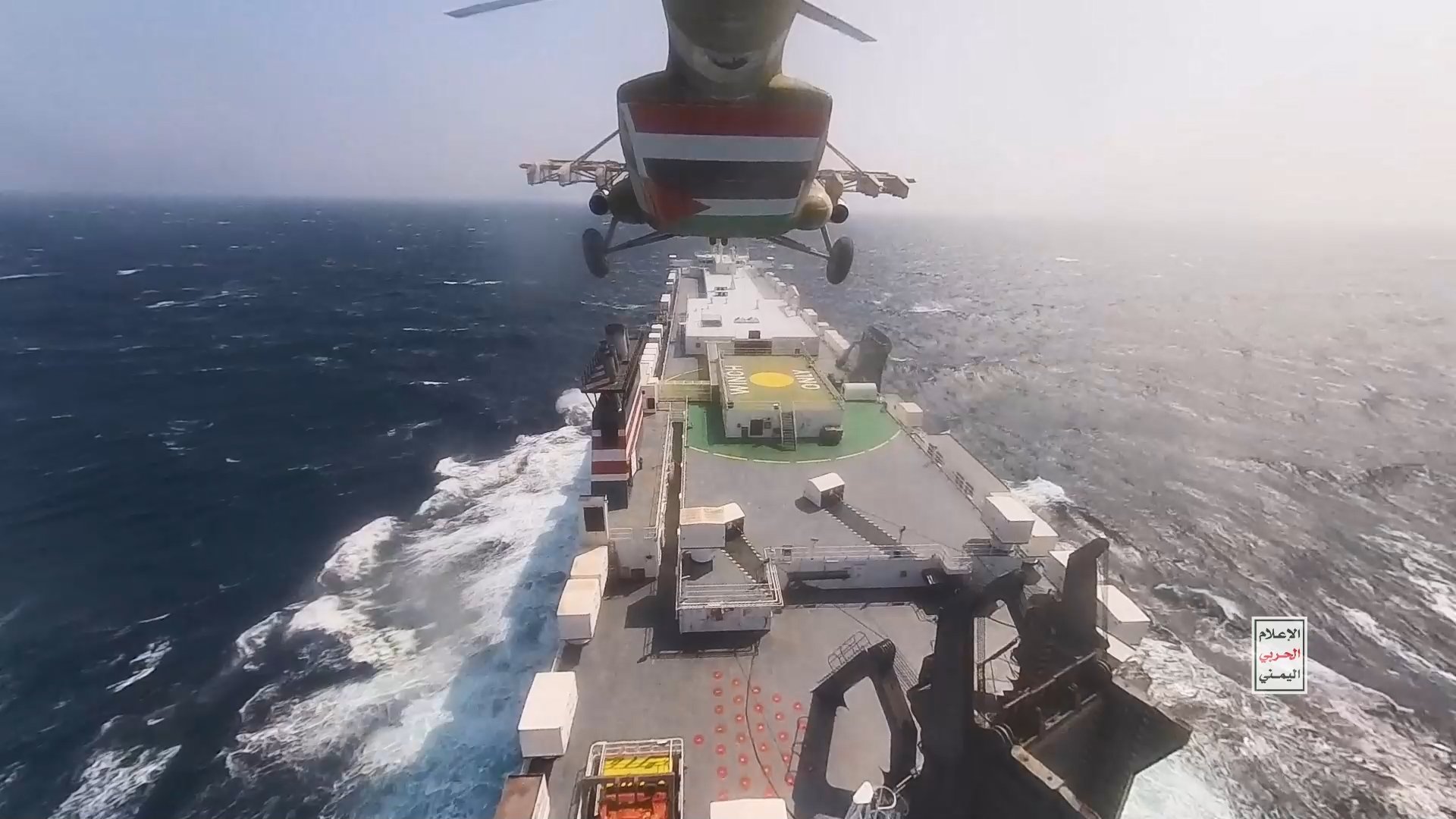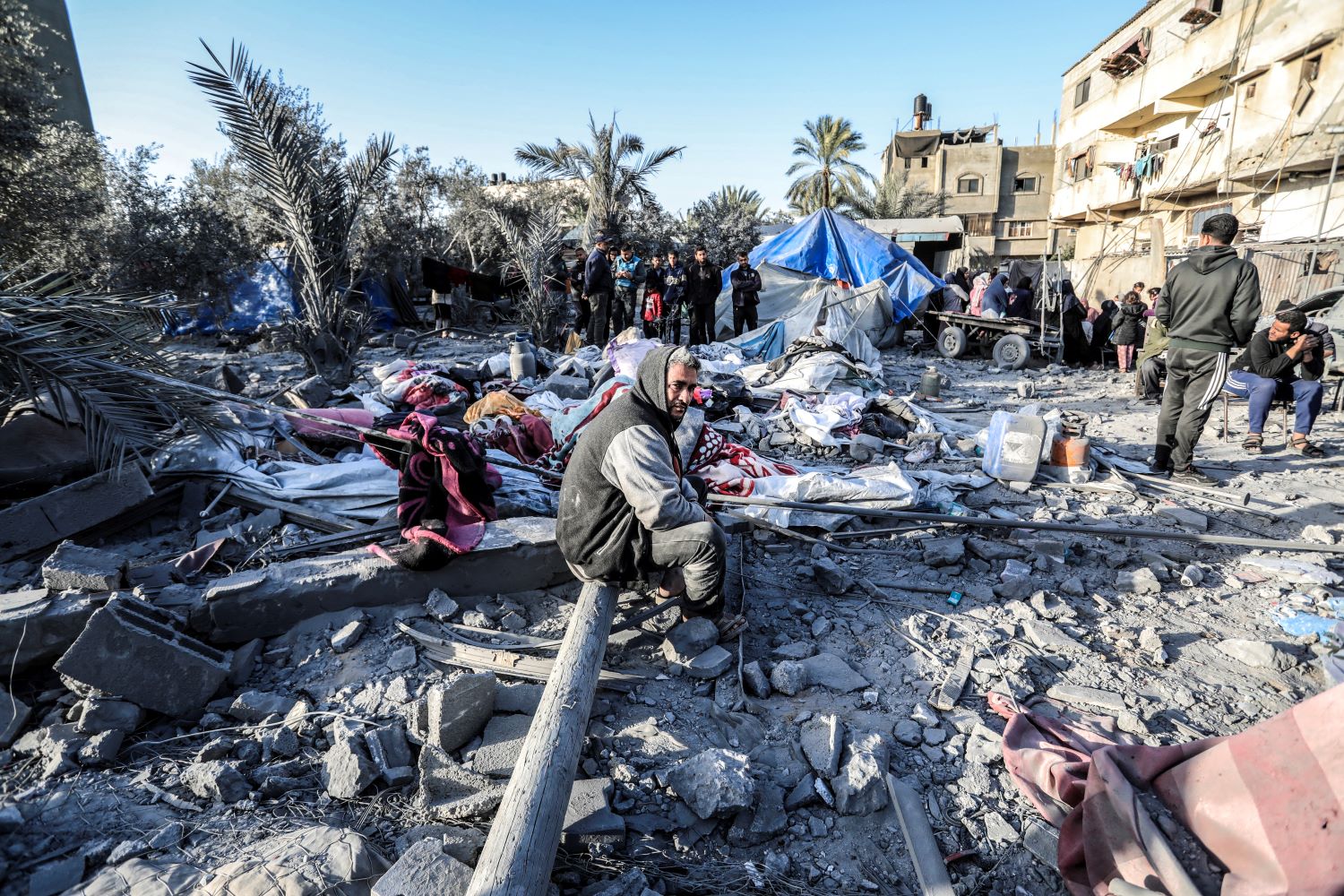After U.S. and UK attacks, the Houthis, who previously vowed to target only Israeli ships or those en route to Israel have now vowed to expand the scope of their attacks to include American and British ships.
Yemen’s Houthis on Wednesday attacked two American-flagged cargo ships, Maersk Detroit and Maersk Chesapeake, carrying supplies for the United States Defence and State departments, as part of a movement started by the group in a show of solidarity with Palestine.
The U.S. Navy, however, intervened and intercepted the incoming fire.
The attack, part of the Houthi’s ongoing pressuring moves in the Bab el-Mandeb Strait, has intensified the stakes in the region.
Both the U.S. and the United Kingdom have launched multiple airstrikes to counter the Houthi moves.
Major liquefied natural gas exporter Qatar issued a warning about the impact on its deliveries due to the Houthi attacks linked to Israel’s genocide in Gaza. The escalating tensions have forced Qatar to reroute shipments, affecting the schedule of its LNG deliveries.
“QatarEnergy confirms that Qatar’s LNG production continues uninterrupted, and our commitment to ensuring the reliable supply of LNG to our customers remains unwavering while the ongoing developments in the Red Sea area may impact the scheduling of some deliveries as they take alternative routes,” state-owned QatarEnergy said on Wednesday.
The statement added: “LNG shipments from Qatar are being managed” with its buyers.
Danish shipping company Maersk confirmed Wednesday’s attacks to AP.
“While en route, both ships reported seeing explosions close by and the U.S. Navy accompaniment also intercepted multiple projectiles,” Maersk reported. “The crew, ship, and cargo are safe and unharmed. The U.S. Navy has turned both ships around and is escorting them back to the Gulf of Aden.”
Maersk reported that both ships transported cargo for the U.S. Defence and State Departments, along with other government agencies, signifying that they received the “protection of the U.S. Navy for passage through the strait.”
Operated by Maersk Line, a U.S. subsidiary of Maersk, the company stated that it is currently “suspending transits in the region until further notice.”
The U.S. military’s Central Command attributed the attack to the Houthis, citing the firing of “three anti-ship ballistic missiles.” The USS Gravely, an Arleigh Burke-class guided-missile destroyer, successfully intercepted and shot down two of the missiles.
The group that controls much of Yemen claimed responsibility for the attacks and vowed to persist in their assaults, the group’s military spokesman Brig. Gen. Yahya Saree said.
Since Israel waged its genocidal war on Gaza, the Houthis have been targeting commercial shipping in the region that they deem to have connections to Israel or are en route to Israeli ports.
The Israeli genocide in Gaza has so far killed at least 25,700 Palestinians and injured 63,740.
As tensions in the region escalated, the group expanded their assaults, indicating intentions to include the targeting of American and British ships. The U.S. and the UK have responded with rounds of airstrikes targeting suspected Houthi sites.
U.S. and UK forces carried out a new round of strikes on Monday in Yemen.
On Tuesday, Yahya Saree said that the alliance between the U.S. and Britain executed 18 airstrikes. These strikes included 12 in the capital Sanaa, three in the port city of Hodeidah, two in Taiz, and one in Al-Bayda province, he detailed.
“These attacks will not go unanswered or unpunished,” he said.
Until now, Houthi operations have primarily focused on the confined Bab el-Mandeb strait, linking the Gulf of Aden to the Red Sea.
This crucial waterway sees about 50 ships traverse it daily, navigating to and from the Suez Canal — a pivotal route for worldwide maritime commerce.
The Houthi group asserts it is acting in solidarity with Palestinians and maintains that they are attacking the vessels to pressure Israel to end its genocide in Gaza and relax restrictions on humanitarian aid supplies intended for Palestinians.
British and American ships, according to Nasruldeen Amer, a spokesperson for the Houthis, have become “legitimate targets” due to the recent strikes on Yemen by those two countries.
“The ship doesn’t necessarily have to be heading to Israel for us to target it. It is enough for it to be American,” Amer said.
“The United States is on the verge of losing its maritime security.”
In response to the heightened risks, several major shipping firms have opted to halt their activities in the area, rerouting their vessels on the lengthier journey around the Cape of Good Hope in South Africa.
This strategic shift has resulted in a deceleration of trade between Asia and Europe.







